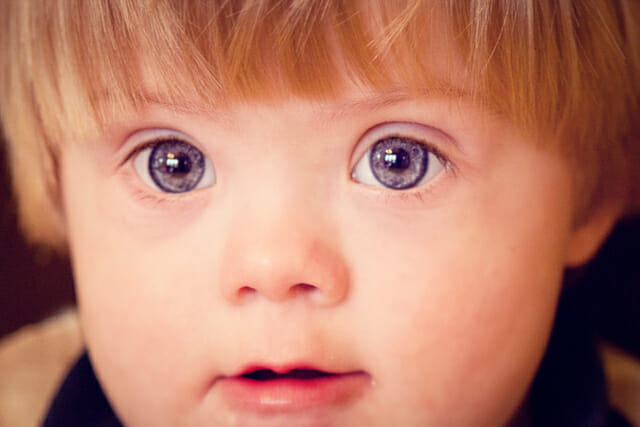As I send my youngest child, Adam, off to college, I remember my first days as a pediatric occupational therapist when he was one and barely walking. I spent those early years learning how to treat young children, watching my son obtain milestones that other children struggled to achieve.
Now as a “seasoned” therapist, I have the unique opportunity to share information that I’ve gained through my years of practice. One conversation that I frequently have in the waiting room is related to vision, and the importance of vision to our lives. Often, parents tell me that a recent visit to an opthalmologist has confirmed that their child’s vision is fine, but I notice difficulties almost immediately upon seeing their child. They wonder: Who is right? Isn’t an opthomalogist the expert on vision? Why is my therapist telling me something different?
We need to remember that vision is a learned process.
Yes, we are born with the physical capacity to see but infants must learn how to see “details” and make sense of what they see. This process does not happen overnight. Children develop vision through movement. A while ago I attended a workshop about vision and was told about a tribe in Africa where infants are carried by adults and are not allowed to crawl due to the presence of poisonous snakes and insects. Because of this experience, these infants have limited opportunity to move on their hands and knees and, as a result,their near vision is not as clear. These children and adults “see” differently than we do even though we are all born the same.
Vision is developed by experiencing our world in three dimensions.
We need to provide our children with opportunities to explore their world so their eyes can learn to focus near and far, track moving objects, and change focus between objects. Children must also learn what “details” mean and how the orientation of the object affects the meaning of these details …. a cookie is still a cookie when turned (thank goodness), but a “b” changes to a “q”.
So what does all this mean?
When you take your child to an ophthalmologist, your child is receiving medical care from a physician with extensive training on the eye, but not necessarily on vision. These doctors are experts and the right choice for a cataract or serious eye infection, but their training on functional vision is limited. Ophthalmologists can perform surgery, but they may not be the best choice if a child demonstrates poor attention, skips words when they read, becomes carsick, and avoids reading.
For vision issues, it’s best to take your child to a developmental or behavioral optometrist.
These doctors receive extensive training, just like ophthalmologists, but they are experts in functional vision, rather than the anatomy of the eye. Optometrists will complete an examination not only for acuity (i.e., checking to see if glasses are needed), but will also look at the child’s functional vision. The examination should look at their ability to change focus between far/near objects, track numbers across a page, converge (look at objects up close), and change focus between objects. The examination may also include specialized machines that can look at eye movement while reading or visual perceptual tests.
If vision therapy is recommended, your child’s program is based on the results of standardized tests, the needs of the patient, and your child’s signs and symptoms. Programs typically involve eye exercises and the use of lenses, prisms, filters, occluders, specialized instruments, and/or computer programs. A course of therapy usually lasts 8-12 weeks.
So who should see a developmental optometrist?
- Children of all ages, but especially children just starting school
- Children who are having trouble with reading or learning, including children diagnosed with dyslexia
- Children who seem to be uncoordinated in visually demanding sports
- Children who are considered “behavior problems”
- Children who are reading “below their potential”
- Anyone who participates in athletics and wants improved performance
- Anyone who works at a computer
- Anyone who has a visually demanding job
- Children and adults with autism
If you are looking for more information on vision in children, the following websites may help you:
College of Optometrists in Vision Development (COVD)
Parents Active in Vision Education
As an occupational therapist, I have worked with many children who demonstrate visual issues. Often our children will demonstrate improved fine motor skills – including handwriting – when visual deficits are addressed first.
So as I send my son off to college, I hope that he “sees” the world as a wonderful place for him to explore and learn. I will remind him as I did when he was a child to move, touch, and safely explore his world, because then he can really “see” what the world can offer him and can start to communicate and imagine his dreams.
Jill Ronske, BS, OTR/L








